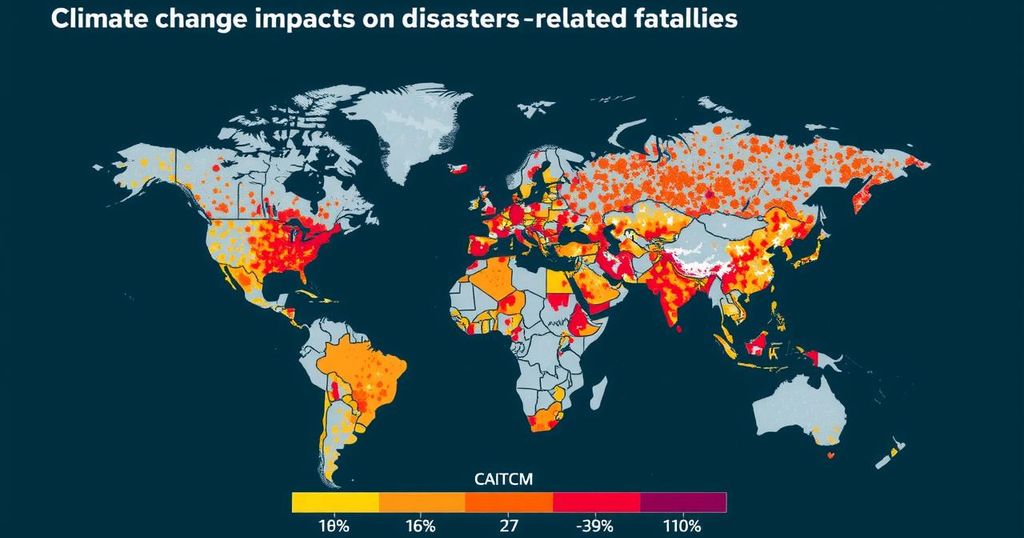The World Weather Attribution report reveals that climate change intensified ten major weather disasters in the last 20 years, causing approximately 570,000 deaths globally. This analysis includes significant events such as hurricanes, heatwaves, droughts, and floods, emphasizing the need for immediate climate action.
A newly published report by World Weather Attribution has brought to light that the top ten most catastrophic weather events recorded over the past two decades were exacerbated by human-induced climate change, resulting in approximately 570,000 fatalities worldwide. The natural disasters covered in the report include three hurricanes, four heatwaves, two droughts, and a single flood. The comprehensive study analyzed data from the International Disaster Database dating back to 2004, identifying the most lethal incidents among these events. Notably, the 2011 drought in Somalia emerged as the deadliest disaster, claiming over 250,000 lives. Another significant event was Tropical Cyclone Nargis in Myanmar, which resulted in nearly 140,000 fatalities in 2008, followed by a devastating heatwave in Russia in 2010 that led to more than 55,000 deaths. Together, these three disasters accounted for a substantial proportion of the overall death toll examined in the research. Utilizing advanced computer models developed over the past twenty years, researchers evaluated the extent to which climate change influenced the probability and severity of these weather catastrophes. By simulating atmospheric conditions that would exist without anthropogenic impacts since the Industrial Revolution, they established a control scenario to effectively compare current disasters with a scenario of 1.2°C of global warming. “Climate change isn’t a distant threat. It worsened extreme weather events that left more than 570,000 people dead,” stated Dr. Friederike Otto, co-founder and lead researcher at World Weather Attribution at the Center for Environmental Policy, Imperial College London. She further emphasized the urgency of addressing fossil fuel dependence among political leaders to mitigate ongoing suffering that results from these disasters. This report arrives at a critical moment, coinciding with a United Nations statement indicating that the globe is on course for a 3°C increase in temperatures by the close of the 21st century. Dr. Roop Singh of the Red Cross Red Crescent Climate Centre underscored the pressing need for improved readiness in the face of worsening climate conditions: “The massive death tolls we keep seeing in extreme weather shows we are not well prepared for 1.3°C of warming, let alone 1.5°C or 2°C.”
The impacts of climate change are increasingly evident through a rise in frequency and intensity of extreme weather events. The World Weather Attribution’s latest report highlights the correlation between human activities, such as fossil fuel combustion, and the amplification of these natural disasters. Understanding the factors contributing to weather extremes aids in recognizing the urgency of climate action. By analyzing data from the International Disaster Database, the report draws attention to the significant human toll associated with climate events and emphasizes the necessity for policy changes to combat long-standing issues related to global warming.
In summary, the report underscores the profound impact of human-induced climate change on extreme weather events, with a staggering death toll of 570,000 lives lost to natural disasters within the last two decades. The findings highlight the critical urgency for political leaders to transition away from fossil fuels to prevent further tragedies. With indications of projected global warming reaching 3°C, the need for enhanced preparedness and proactive measures is more pressing than ever.
Original Source: www.theinertia.com






